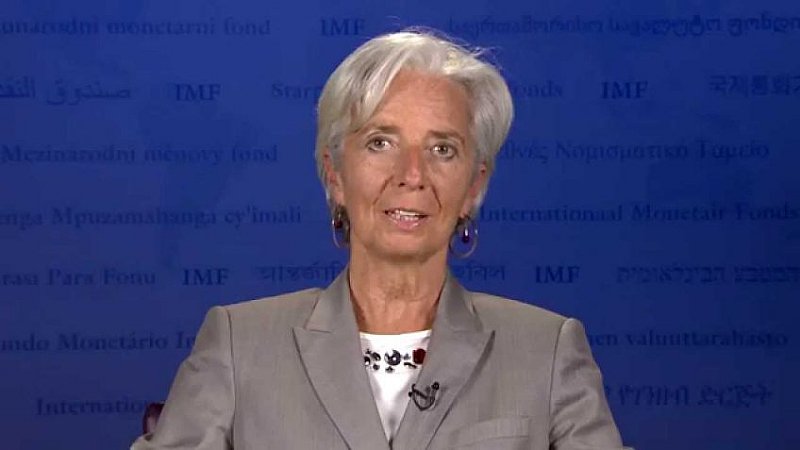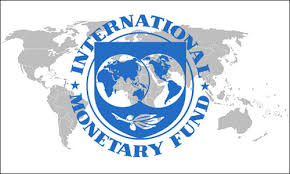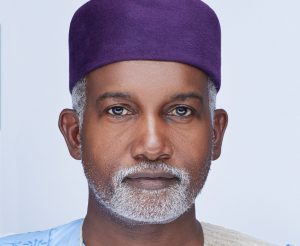Beware of Largarde’s Pill


In 1997, some countries in Asia namely Thailand, South Korea, The Phillipenes, Indonesia and Malaysia were facing a serious crisis which was later referred to as the Asian financial crisis. The meltdown was caused by the heavy reliance by South Korea, Thailand, Indonesia, The Philippines and Malaysia on short-term foreign loans – reliance brought about by the advice given them by the International Monetary Fund and the United States Treasury Department. Private enterprises in those nations could no longer meet their payment obligations anymore. There was palpable panic in the international currency market caused by this defaults. Currency traders converted their Asian currencies into dollars leading to the plummeting of the Asian currencies making it harder for them to pay back their loans and escalating greatly the costs of imports.
IMF then came in and told the debtor nations that they would provide the loans for them to meet their foreign debt payments on the condition that they implement structural adjustment policies. Thailand, South Korea and Indonesia took the loan while Malaysia rejected the loan and opted for the imposition of capital control instead which closed up the economy and discouraged the activities of speculators. The IMF laughed them to scorn initially for their bold move but they were forced to eat their words after the storm had passed. The Thai economy shrunk by 10.5% in 1998, rebounding to a mere 4.4% in 1999, Indonesia’s contracted by 13.1% in 1998 and rebounded to a pitiable 0.8% in 1999 with poverty rising from 11% before the crisis to between 40 and 60%. Food shortage was so terrible in the largest Muslim nation on earth that the then President B.J. Habibie asked the citizens to fast twice a week. In South Korea, unemployment rose from 3% to 10% with suicide a common occurrence. Contrast this with Malaysia whose economy contracted by 7.4% in 1998 and then rebounded by 6.1% a year later. The nation governed with the visionary leadership of Dr. Mahathir Mohammed has gone on to become an Asian Tiger with its economic miracle recovery studied in a similar mould to that of Singapore.
In the last IMF/World Bank meeting, the IMF boss, Christine Largarde advised the Nigerian government to remove subsidy from fuel and channel it to education and infrastructure. Some pro-IMF backers hailed her statement as being altruistic and advised Buhari to immediately implement it.
The Minister of State for Petroleum, Dr. Ibe Kachikwu said he would advise Buhari on what to do and we are waiting for the next step of the presidency with regards to her advice.
This writer advises Mr. President to take Largade’s advice with a bucket of salt pardon my French. Nigeria runs a mono economy with crude oil being its major revenue earner. Most of her citizens don’t even enjoy the oil proceeds as we still pay exorbitantly for it. Why then should subsidy from it be removed when it will cause the price to skyrocket as well as the prices of other items which will do nothing but bring more hardship to the man on the street?
The essence of the fuel subsidy is to ensure that the marketers of the product are duly compensated as the landing cost is usually higher than what they used to bring it in. if it is removed, how on earth will they make a profit? The masses will be at the receiving end as they will be the one to bear the brunt.
IMF prescriptions have always been brutal to third world nations from the inception of the Bretton Woods Institution. We recall that the structural adjustment programme which Ibrahim Babangida implemented in the 1980’s was a home grown clone of the IMF. Critical sectors of the economy like education and healthcare had their subsidies removed which led to the exodus of the best and brightest to the West and Asia to eke a living for themselves and their families.
No sane country on earth develops with the prescriptions of IMF. Economic historians recall that Japan was battered after the Second World War in 1945, the same year that the IMF was founded. By 1964 – less than twenty years later, they were hosting the world through the Olympic Games. They didn’t run to the IMF. They simply made their economy an export dependent one by sending their best brains to understudy the technological sector of the United States. Today, Japanese products are giving American products a run for their money on the latter’s home soil. Japan at a point was ranked second after the United States in the most prosperous nations of the world.
China didn’t become the fastest growing economy in the world who now even lends money to other nations on the back of an IMF prescription. She was able to lift 700 million people out of poverty through the creation of an export dependent economy and taking advantage of her huge population to spread all over the world. Chinese food has been branded as an international meal which is eaten with relish the world over.
South Korea had to extricate herself from the mess she got into when she took their advice. Through a visionary leadership, they got their acts together by making human capital development a top priority. Today, they are the better for it as they are a force to be reckoned with in the international comity of nations.
One noticeable feature about the IMF is their more than passing interest in third world nations. Their prescriptions are never given to first world nations when they experience crisis. Third world leaders should see through the die-hard conspiracy to keep them in perpetual poverty and agony for all eternity with no hope of being bailed out.
Wealth and poverty are choices you consciously make. The IMF has a big hand in the current poverty that Nigeria is facing and should be given a wide berth if we are to advance further as a nation.
Let’s learn the great art of diplomacy by knowing which kind of advice to pick from and the ones to discard. We are a Sovereign nation and shouldn’t be afraid to stand up to these big international bullies who will stop at nothing but rape our already fragile economy. At independence, we had so much promise; it’s a shame that the likes of Malaysia, Singapore and many of those who were liberated in the 1960’s have long overtaken us. We remember the tragic popular tale of Malaysia coming to borrow our palm seedlings in 1960 and now we import palm oil from that nation.
We need President Buhari to come out strongly on the side of the masses denouncing this ‘prescription’ that may make this country teeter on the verge of an Arab spring.
Ademiluyi wrote in from Lagos.
In 1997, some countries in Asia namely Thailand, South Korea, The Phillipenes, Indonesia and Malaysia were facing a serious crisis which was later referred to as the Asian financial crisis. The meltdown was caused by the heavy reliance by South Korea, Thailand, Indonesia, The Philippines and Malaysia on short-term foreign loans – reliance brought about by the advice given them by the International Monetary Fund and the United States Treasury Department. Private enterprises in those nations could no longer meet their payment obligations anymore. There was palpable panic in the international currency market caused by this defaults. Currency traders converted their Asian currencies into dollars leading to the plummeting of the Asian currencies making it harder for them to pay back their loans and escalating greatly the costs of imports.
IMF then came in and told the debtor nations that they would provide the loans for them to meet their foreign debt payments on the condition that they implement structural adjustment policies. Thailand, South Korea and Indonesia took the loan while Malaysia rejected the loan and opted for the imposition of capital control instead which closed up the economy and discouraged the activities of speculators. The IMF laughed them to scorn initially for their bold move but they were forced to eat their words after the storm had passed. The Thai economy shrunk by 10.5% in 1998, rebounding to a mere 4.4% in 1999, Indonesia’s contracted by 13.1% in 1998 and rebounded to a pitiable 0.8% in 1999 with poverty rising from 11% before the crisis to between 40 and 60%. Food shortage was so terrible in the largest Muslim nation on earth that the then President B.J. Habibie asked the citizens to fast twice a week. In South Korea, unemployment rose from 3% to 10% with suicide a common occurrence. Contrast this with Malaysia whose economy contracted by 7.4% in 1998 and then rebounded by 6.1% a year later. The nation governed with the visionary leadership of Dr. Mahathir Mohammed has gone on to become an Asian Tiger with its economic miracle recovery studied in a similar mould to that of Singapore.
In the last IMF/World Bank meeting, the IMF boss, Christine Largarde advised the Nigerian government to remove subsidy from fuel and channel it to education and infrastructure. Some pro-IMF backers hailed her statement as being altruistic and advised Buhari to immediately implement it.
The Minister of State for Petroleum, Dr. Ibe Kachikwu said he would advise Buhari on what to do and we are waiting for the next step of the presidency with regards to her advice.
This writer advises Mr. President to take Largade’s advice with a bucket of salt pardon my French. Nigeria runs a mono economy with crude oil being its major revenue earner. Most of her citizens don’t even enjoy the oil proceeds as we still pay exorbitantly for it. Why then should subsidy from it be removed when it will cause the price to skyrocket as well as the prices of other items which will do nothing but bring more hardship to the man on the street?
The essence of the fuel subsidy is to ensure that the marketers of the product are duly compensated as the landing cost is usually higher than what they used to bring it in. if it is removed, how on earth will they make a profit? The masses will be at the receiving end as they will be the one to bear the brunt.
IMF prescriptions have always been brutal to third world nations from the inception of the Bretton Woods Institution. We recall that the structural adjustment programme which Ibrahim Babangida implemented in the 1980’s was a home grown clone of the IMF. Critical sectors of the economy like education and healthcare had their subsidies removed which led to the exodus of the best and brightest to the West and Asia to eke a living for themselves and their families.
No sane country on earth develops with the prescriptions of IMF. Economic historians recall that Japan was battered after the Second World War in 1945, the same year that the IMF was founded. By 1964 – less than twenty years later, they were hosting the world through the Olympic Games. They didn’t run to the IMF. They simply made their economy an export dependent one by sending their best brains to understudy the technological sector of the United States. Today, Japanese products are giving American products a run for their money on the latter’s home soil. Japan at a point was ranked second after the United States in the most prosperous nations of the world.
China didn’t become the fastest growing economy in the world who now even lends money to other nations on the back of an IMF prescription. She was able to lift 700 million people out of poverty through the creation of an export dependent economy and taking advantage of her huge population to spread all over the world. Chinese food has been branded as an international meal which is eaten with relish the world over.
South Korea had to extricate herself from the mess she got into when she took their advice. Through a visionary leadership, they got their acts together by making human capital development a top priority. Today, they are the better for it as they are a force to be reckoned with in the international comity of nations.
One noticeable feature about the IMF is their more than passing interest in third world nations. Their prescriptions are never given to first world nations when they experience crisis. Third world leaders should see through the die-hard conspiracy to keep them in perpetual poverty and agony for all eternity with no hope of being bailed out.
Wealth and poverty are choices you consciously make. The IMF has a big hand in the current poverty that Nigeria is facing and should be given a wide berth if we are to advance further as a nation.
Let’s learn the great art of diplomacy by knowing which kind of advice to pick from and the ones to discard. We are a Sovereign nation and shouldn’t be afraid to stand up to these big international bullies who will stop at nothing but rape our already fragile economy. At independence, we had so much promise; it’s a shame that the likes of Malaysia, Singapore and many of those who were liberated in the 1960’s have long overtaken us. We remember the tragic popular tale of Malaysia coming to borrow our palm seedlings in 1960 and now we import palm oil from that nation.
We need President Buhari to come out strongly on the side of the masses denouncing this ‘prescription’ that may make this country teeter on the verge of an Arab spring.
Ademiluyi wrote in from Lagos.









